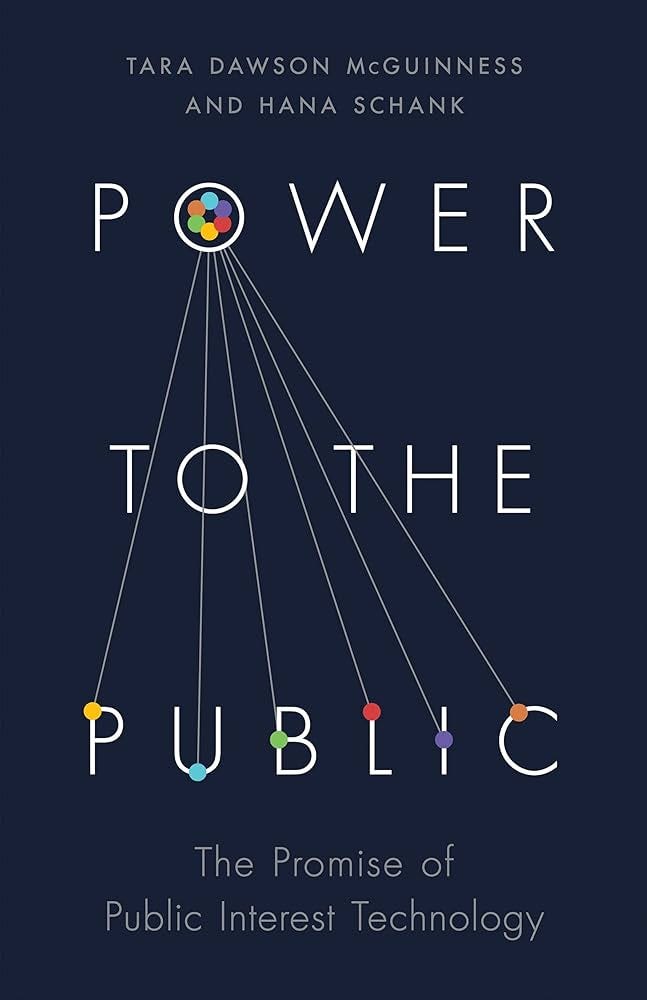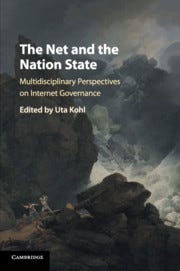interweave's Holiday Reading List 2023
Edition #60 Our readers and authors share their top picks from 2023, and we discuss the four key themes of digital government this year...
2023 has been an exciting year for digital government. Like every sector, the space has been dominated by the immense and rapid changes brought about by emerging technologies – notably Generative AI – as well as novel attempts at international collaboration between countries. With the New Year on the horizon, we wanted to close out 2023 by sharing a digital government holiday reading list (thanks to the New PPT for the inspiration) focused around four themes that have characterized the year in GovTech for us:
Governments around the world are starting to use Generative AI: This year will be remembered as the year that governments around the world started to get to grips with Generative AI in a number of ways, including using it themselves. From the UK thinking about the impact of AI on ministers’ workloads to Dubai’s digital city concierge, from Singapore’s cross-government analytics to Japan’s local government experiments, Eurasian countries wasted no time in setting the pace for LLM use by and for government services, and we should expect to see a continuation of this trend next year.
Sovereign digital government products are being developed to compete with private tech companies: With the advent of Generative AI has come a whole new wave of concerns about privacy and data sharing, and the volatility of platforms like X this year has recast debates about the influence of private tech companies. Governments have begun to respond by building their own rival products – whether Luxembourg’s WhatsApp alternative, or the Dutch government’s answer to ChatGPT.
Small but mighty actors are setting the agenda for digital government: interweave was founded on the premise that not enough attention was being given to countries “beyond the usual suspects” when it came to digital government, a field in which innovation can come from the most unlikely of places. So it has been this year, with Moldova winning the UN ITU’s WSIS prize (see our interview with Olga Tumuruc), and Bhutan developing the first self-sovereign ID (and our chat with Jigme Tenzing).
Cross-border digital government collaborations are more frequent and powerful than ever: Finally, this year has seen more concerted efforts than ever before in international digital government collaboration at both the multilateral and bilateral level. As we look ahead to 2024 it is all eyes on the EU, where talks of Sovereign AI and an EU-wide digital ID may set the agenda as Belgium ascends to the Council presidency.
Recommendations from our readers and authors…
Power to the Public: The Promise of Public Interest Technology – Hana Schank and Tara Dawson McGuinness
Recommended by Luke Cavanaugh
“Now a couple of years old, Schank and McGuinness’s book is no less timely than it was when it was published back in 2021. Packed with a whole host of case studies from immigration to foster care, the authors walk us through the good, the bad and the ugly of digital government. There are useful reminders throughout of a cardinal error of digital government – thinking that digital always means better. Digitizing a broken service can often make it worse!”
The Digital Republic: On Freedom and Democracy in the 21st Century – Jamie Susskind
Recommended by Charlie Smith
“Susskind identifies the systemic failures all around us that have stemmed from lawmakers’ obsessions with market individualism. He argues that the current laws around digital technology do not do enough to adequately govern the power and harms involved. In contrast, his flavor of digital republicanism provides a template for how to regulate the unaccountable power of digital technologies."
Customer Data Access and Fintech Entry: Early Evidence from Open Banking – Tania Babina, Greg Buchak and Will Gornall
Recommended by Tolu Segun
“In their analysis, Babina, Buchak, and Gornall document a 50% boost in fintech funding after open banking policy implementation in 49 nations, underscoring its role in spurring innovation and market competition. The study also cautions against potential downsides, including customer risks and a dip in banks' motivation to collect good data. A good read for anyone interested in navigating the intersection between technological advancement and consumer safeguards.”
Recoding America: why government is failing in the digital age and how we can do better – Jennifer Pahlka
Recommended by Nathan Davies
“In Recoding America, Pahlka draws on her extensive experience inside and outside of government to emphasize the role of user-centricity and empathy in service design. One particular example that stuck with me was an engineer working on food stamps, who used the service themselves for a couple of weeks to understand how technical bugs translated to human shame and adverse outcomes. Equal parts infuriating and inspiring, the book sheds light on both the dedication of civil servants and the ‘layered paint’ of government socio-technical systems and their accompanying path dependency.”
The Net and the Nation State: Multidisciplinary Perspectives on Internet Governance – Uta Kohl
Recommended by Fiona Waithira
“The book analyzes the growing conflict between the nation-state and internet when it comes to cyber governance, differentiating between online law and state law. In a world that is increasingly more connected, the book begins with the premise that there is a greater need to understand how internet governance happens across different geographies. To this end, Kohl asks all the right questions: how does internet governance in China influence that of the USA? Does the state play any role in shaping internet governance, or is this the role of digital corporations? If not, how are they both cooperating, and who is regulating?”
The Consequences of Leaving Tech to the Private Sector, with Rosie Collington – Tech Won’t Save Us
Recommended by Yogesh Hirdaramani
“In this episode of “Tech Won’t Save Us,” UCL’s Rosie Collington argues that outsourcing government technology and IT infrastructure to tech companies can leave them dependent on big tech. She makes the case that governments have a responsibility to deepen internal capacities in-house and avoid vendor lock-in. It’s a fascinating argument that probes deeper questions about how governments should digitalize and what the right combination of public and private should be.”
ReState’s Future Governance Toolkit - ReState
Recommended by Deborah Tien
Something different here. Deborah recommends a toolkit for digital government enthusiasts and practitioners alike, compiling examples, best practice and learnings on participatory governance, budgeting and mapping.
And finally, a few of the best articles we’ve covered this year…
Kazakhstan’s Smart City where everybody knows your name – Bradley Jardine, Coda
Just a few weeks ago, we looked at the dual-sided smart village in Aqkol. The village’s 13,000 inhabitants are now supported by a digital ecosystem monitoring everything from solar panels to the GPS on public service vehicles. Surveillance concerns aside, the village’s otherwise basic infrastructure challenges were a reminder to us that technology is not a catch-all governance solution, but exists somewhere in the upper rungs of a hierarchy of community needs.
How Ukraine is becoming the world’s number one on digital government - Kostiantyn Gridin and Nina Kurochka, Kyiv Post
Reading this article was a reminder of Time Magazine’s profile of Fedorov back in March 2022, where Ukraine’s youngest cabinet minister was hailed for mobilizing the country’s IT sector after Russia’s invasion. Ukraine began its digitalization journey in 2019, and has been able to continue it despite both the COVID-19 pandemic and Russia’s full-scale invasion of the country. Now, other countries are looking to Ukraine’s successes, exemplified by the joint EU/UNDP/MinDigital forum held in Kyiv earlier this year.
How AI could revolutionize diplomacy - Andrew Moore, Foreign Policy
While the majority of digital government efforts have focused on so-called “delivery departments”, Moore explores the ways in which AI is set to revolutionize diplomacy too. “Even if diplomacy remains an art, it will increasingly rely on hard science”, he writes.







